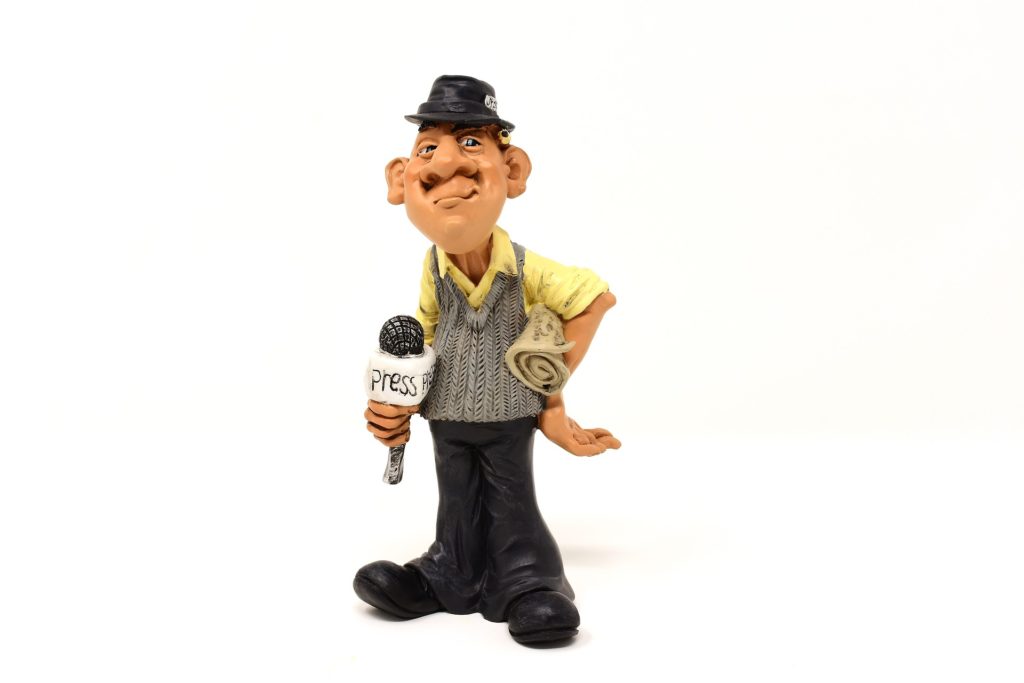
From My Archives
 By Deepak Parvatiyar
By Deepak Parvatiyar
(This article was published in Indian Media Centre’s journal Media Critique in its October-December 2010 issue)
The Business of Journalism
So you thought a business reporter is more of a gift voucher collector? That he/she is driven more by the power of the currency than good journalism, issues of social equality and justice. You argue there is nothing wrong with that. After all, we are vigorously pursuing a free economy and it is just a matter of time before the rupee becomes fully convertible. So what is wrong if the reporter secures his/her livelihood in this era of highly competitive markets? Protectionism is history and jobs are as temporary as flight. So given an opportunity, why shouldn’t a business journalist make hay when the sun shines? We all are mortal beings after all! If with a stroke of the pen I do good to the fortunes of a company, isn’t it good for me?

In an open market economy where virtually everything has a customer, a value judgment is impractical. So shun ethics. Who cares about the guidelines such as a reporter should not write about a company in which he/she has invested in the stock? Quite understandably, more than a job and consumer issues (they do make headlines sometimes), or company issues (which make news largely when there are M&As or corporate feuds), it is the stock market issues that have become the fad also because while it is easy for a business channel or newspaper to inform, advise and guide the investors, it is not easy to check how much of it is hype and advertising.
Also read: Retrospective: The advent of news television and the fall of journalism
Little wonder then that the anchors of channels are even found displaying open emotions at the surge of the markets or when they fall. There is so much at stake for them too, much to the discomfiture of an old-fashioned journalist who is still overburdened by the Leftist tag of the pre-liberalization era. But in those days, the government-controlled everything sans the media (It did try to gag the media during the emergency, albeit unsuccessfully). For a reporter of those days, it was easier to take on the government than the business houses that are less tolerant and also offer more opportunities. They are bigger advertisers than the government. After all who would crave an advertisement at the miserly government rate?
Today it is a fiercely competitive market right from outsourcing to petroleum. Today we live in an age of high GDP. So why care whether the inflation is in double-digit or a Commonwealth game scents a scam? And hence, why shouldn’t we propagate a cushy lifestyle for others? At a time when Infotainment has superseded crusades, we ape success in the jumble of a self-perceived buyers’ market where even a piece of news is evaluated on the basis of its murky TRP-based market value than its propriety.
Ironically, even in the late eighties, when I joined journalism and when journalists still loved the leftist tag on them and ‘business’ was a taboo word in journalistic parlance, gift vouchers from corporate houses were very much in vogue and a business editor could well find his way on the board of various corporate houses.(I recall an instance when journalists boycotted a press conference of a corporate house because the gift voucher amount was less than what the reporters had asked for). Some of those who covered the stock exchange could be found excessively busy on the phone, advising investors about the shares, of course at a cost!
 Unethical they may sound but over the years, and more so with the advent of private news channels, the practice of seeking undue favours acquired a more corporatized structure. While journalists got favours such as government accommodation, out of turn gas/phone connections were very much in vogue, instead of curbing them, the media houses themselves stepped in with the concept of paid news or advertisements that are disguised as news in return for money.
Unethical they may sound but over the years, and more so with the advent of private news channels, the practice of seeking undue favours acquired a more corporatized structure. While journalists got favours such as government accommodation, out of turn gas/phone connections were very much in vogue, instead of curbing them, the media houses themselves stepped in with the concept of paid news or advertisements that are disguised as news in return for money.
So as you believed that only business journalism was all about money power, paid news ensured that journalism itself became a saleable commodity, custom-made for the advertiser.
So now you ask that if paid news is acceptable then why shouldn’t blackmailing be? You argue that after all, if money can be paid to publish/air news then what is wrong with paying money to stop a news item?… Isn’t soliciting the name of the game? You remind us about the term “intellectual prostitution” that is so pithily associated with journalism. (I wish to believe that this is black humour on your part). Yet you lament why the laws to curb prostitution despite amending SITA (Suppression of Immoral Traffic Act), to PITA (Prevention of Immoral Traffic Act), cannot be implemented to curb this intellectual prostitution. But then you are reminded that both SITA and PITA have flopped in our country.
But before you give up, you wonder what role ethics and values have in journalism?

Now you agree that this is the ripe time to write the epitaph for journalistic ethics and values. The curtain was drawn on them long before the advent of the private channels in the country. “Journalism is big business”, had become the credo by the turn of the eighth decade of the last century. That was the time when journalism institutes started growing in numbers. The private television channels and their wedlock with venality have proved to be yet another nail in the coffin of ethical journalism.
So you agree that in today’s journalism, the news is a glamorous commodity aimed at entertaining you. A media house enjoys a symbiotic relationship with the corporate houses. Advertisements and TRPs are the new driving forces of the media industry and are no more the social causes and concerns. So let the foodgrain rot till some corporate house rakes up the issue as part of its “corporate responsibility” budget!
You say this was inevitable! As foreseen in the eighties, journalism has become a big business and like any other business, it has embraced consumerism with all its ills.
So should we lament this demise of sensitive media? I just chanced upon a piece by a senior editor who lamented the demise of the editor in these words:” Editorial integrity, as we once knew it, died long back and no one really noticed. Like those doves, they shoot and mark with crimson to denote peace or swords rusting their own glory. Much the same way, senior journalists sold their souls to the highest bidder and turned Faustian.”
You wish to add that this happened also because of the fact the media is controlled only by a few.
That it is an oligopolical industry wherein media barons enjoy enormous clout.
But is this enough reason to sound pessimistic? I go with you.





